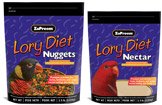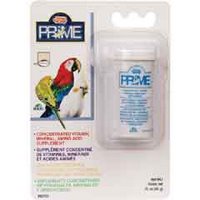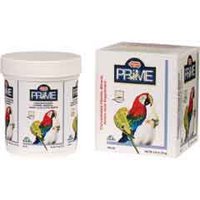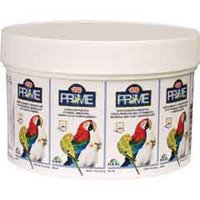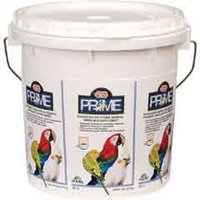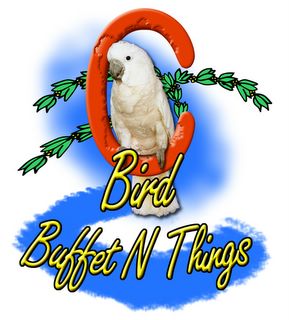There are many species of Lories and Lorikeets. There is the Duyvenbode's Lory, Black Lory, Yellow-streaked Lory, Cardinal Lory, Johnstone's Lorikeet, Scaly-breasted Lorikeet, and the Purple-bellied Lory to just name a few. Lories are larger, heavier-bodied birds with squared-off tails. Lorikeets are more slender, with longer, tapering tails. All lories and lorikeets are beautiful; most species have brightly colored, glossy feathers in rainbow hues, with coral-red beaks. For a list of Lori and Lorikeet species and information about each of them, visit Lexicon of Parrots.
The majority of the Lories and Lorikeets have a natural diet of flowers, nectar, pollen, and soft fruit. Lories are usually more expensive than some other parrots because of their need for a nectar diet. The nectar diet will result in loose droppings. Lories should never be fed just a birdseed diet. Lories and Lorikeets that raised only on seeds may eventually die from perforation of the crop or malnutrition. To stay healty, Lories need to be fed a good nectar diet twice a day with a variety of fruits and vegetables.
ZuPreem recently introduced two new products, Lory Nuggets and Lory Nectar. Both are formulated specially for nectar-eating pet birds. When fed together, these two complementary diets take the guesswork out of feeding. Colorful, flower-shaped nuggets, and powdered nectar to sprinkle over fresh fruit or dissolve in water add variety to your bird’s diet. Here’s what you and your bird will like about ZuPreem Lory Diets:
ZuPreem® Lory Diet Nuggets are small, flower-shaped, extruded nuggets in purple, green, yellow and orange colors. Nuggets contain bananas, apples and grapes ground from fresh fruit for a tropical fruit flavor and aroma. ZuPreem® Lory Diet Nectar is powdered nectar with a tropical fruit flavor and aroma, and is easily dissolved in water to mimic the nectar these birds eat in the wild.
Roudybush Lory Powered Nectar diet is lower in sugar than other brands of nectars, so switching a bird from another brand of nectar sometimes requires adding a small amount of powdered sugar to the diet and slowly eliminating it to convert the birds. Less sugar is helpful to reduce incidence of yeast infections that lories are prone to due to the high sugar diets they are commonly fed. Some people grind up the maintenance pellets into a powder or convert their birds to maintenance crumbles. Lories do very well on the maintenance diet. Feeding pellets, crumbles, or dry powdered Lory Nectar will result in drier, easier to clean up droppings, making lories that much more pleasant to live with. Although some people use the Lory Nectar to handfeed lory chicks, we recommend using Formula 3, which provides a little higher protein needed for growth in the chicks and eliminates the sugar that could lead to yeast infections.
Brisky Lory Luv Nectar powder will keep your lory healthy and happy while providing the essential nutrients and carbohydrates required to support their high metabolism.
Visit Bird Buffet N Things for these great products and for other products for your Lori and Lorikeets nutritional needs.
